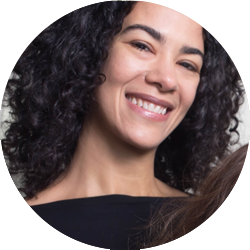“Should I hold my son back from kindergarten?” a mom asked me. Her child was at a play-based preschool, and she was worried that he wasn’t ready for kindergarten because he didn’t know his letters and numbers.
Play-based preschools, I assured her, are the big trend for an important reason: Play is how children learn.
Children may not be memorizing letters and numbers, but they are practicing communication and executive function skills–things that truly set them up for academic success. I talk more about how this happens in Zero to Five: 70 Essential Parenting Tips Based on Science.
For the best learning to happen, though, three fundamentals have to be in balance: stress, sleep, and exercise.
Our kids may not be getting enough of that last crucial ingredient, a small study published in the journal Pediatrics found. The researchers–led by Pooja Tandon, an assistant professor of pediatrics at the University of Washington–went to 10 childcare centers and outfitted 98 kids with activity trackers. They also observed the kids for seven hours at a time, four days per center, over two years. National guidelines say kids should get 15 minutes of activity per hour they’re awake. The researchers’ question:
Did preschoolers get 120 minutes of active play per day, on average, in childcare?
Not even close: 48 minutes.
During 88% of their time at childcare, kids didn’t have an opportunity for active play–“considerably suboptimal,” the researchers wrote. Of course, that statistic is the average. One preschool that took part in the study protested that their kids get three hours of active play per day. Every school is different.
So while you’re considering preschools, ask about time for active play. My daughter and I have been fortunate this past year to be part of a parent-child program at a Waldorf school, where my daughter gets an hour of free play indoors (if I actually get there on time) and an hour of active play outdoors to run, swing, shovel sand, balance on logs, and climb over rocks. This fall, my daughter will attend a forest preschool that’s entirely outdoors. I know that’s an opportunity she couldn’t have at any other time in her school life.
And, frankly, it’s an opportunity I don’t give her every day. We could all use this study as a reminder to arrange our lives around opportunities to be active.
Letters and numbers will come later. Preschoolers need to get the fundamentals down first.
(To dive deep on how exercise, sleep, and stress affect the brain, see Brain Rules: 12 Principles for Surviving and Thriving at Work, Home, and School by John Medina. I edited the book, so I’m biased, but 99,186 fans on Facebook can’t be wrong!)
Written by
Tracy Cutchlow
Tracy is the author of the international bestseller Zero to Five: 70 Essential Parenting Tips Based on Science, a public speaker, and a creator of places to speak and be heard. Sign up for her newsletter here.

